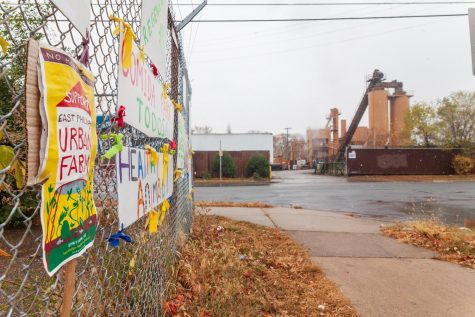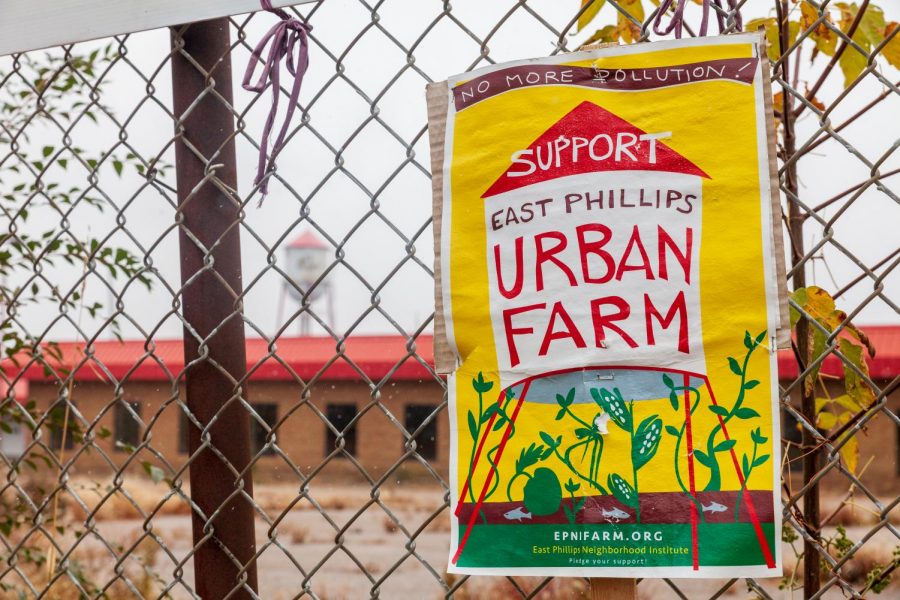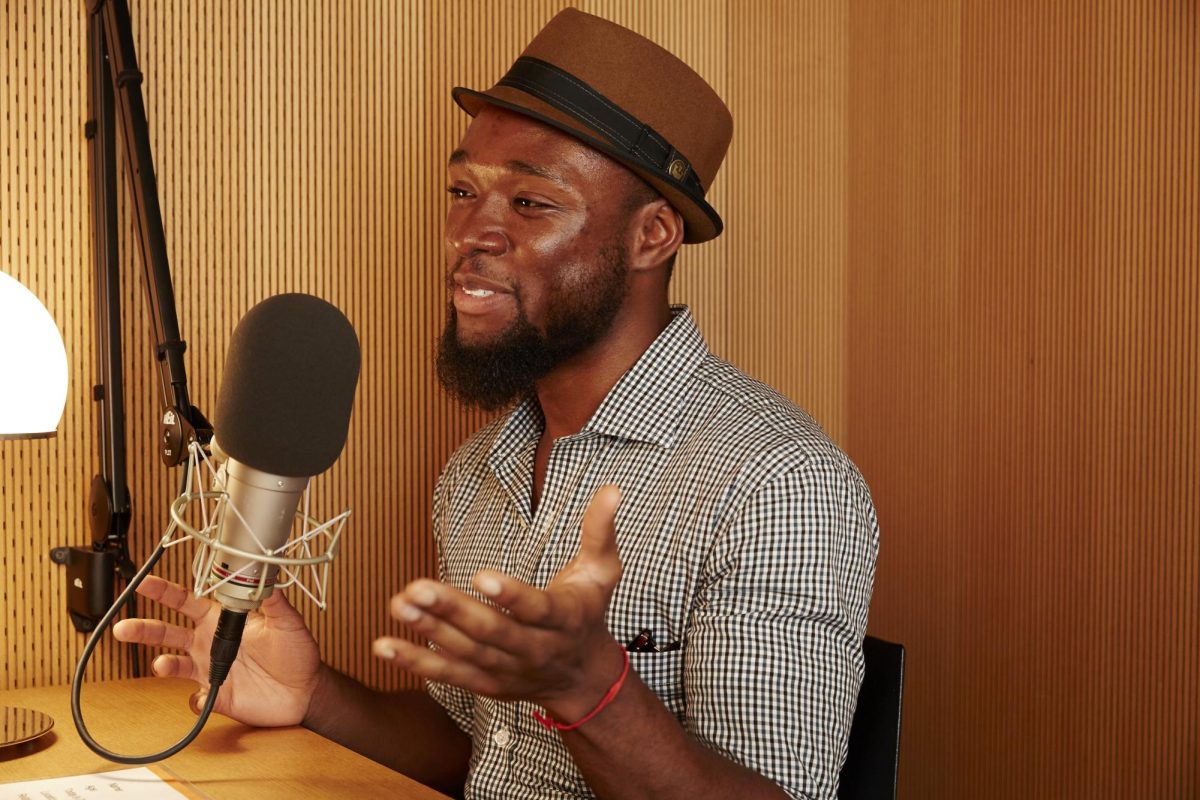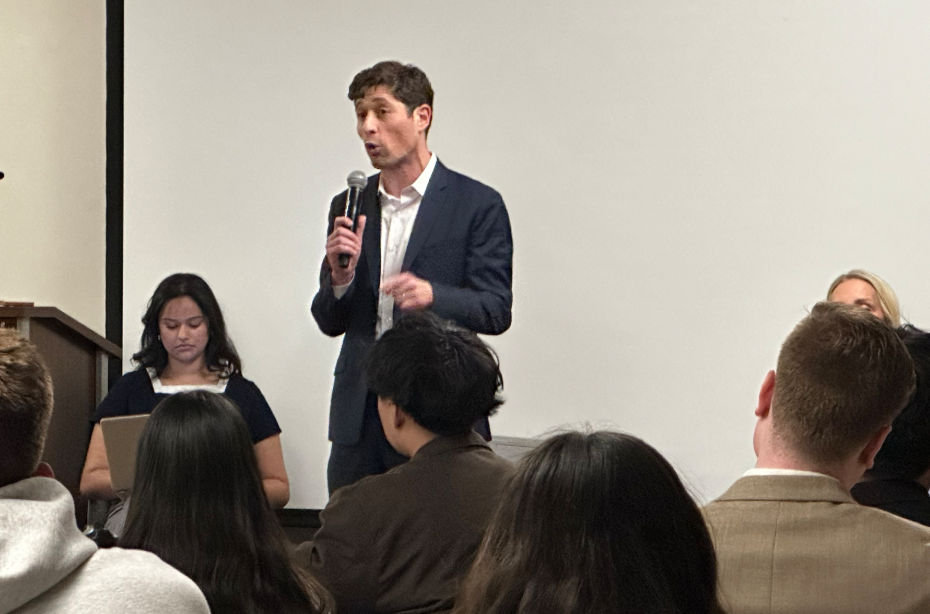University students have joined forces with the East Phillips neighborhood in an ongoing battle to establish an indoor urban farm plan rather than the city’s plan for a public works facility.
East Phillips neighborhood leaders have clashed with the city for years over the fate of the Roof Depot site, pointing to concerns over resident health and environmental justice.
The East Phillips Neighborhood Institute (EPNI) has worked to acquire the south Minneapolis land for years to establish affordable housing and an indoor urban farm in the Roof Depot building, which could provide at least 100 green jobs for neighbors. But the city is hoping to use the space for a Public Works water distribution facility and job training center. A lawsuit is now underway.
University of Minnesota students worked with EPNI to promote the farm and support environmental justice in the low-income neighborhood, composed mostly of people of color.
Nina Domingo, a University graduate student studying bioproducts and biosystems engineering, said she got involved in the project because she has seen a pattern of governments forcing people of color and low-income people into parts of cities — then polluting them.
“After that, we industrialize those same neighborhoods, so that these same people are exposed to high rates of pollution and are locked out of economic development,” Domingo said.
She said this is happening in East Phillips.
The city acquired the land in June 2016 with a plan to demolish the existing unoccupied Roof Depot building and construct a water distribution facility to replace the current 100-year-old operation. The project would consolidate three existing water distribution sites to one centrally located facility. The city’s vision also includes 100,000 square feet of buildings equipped with solar panels and opportunities to upgrade the current fleet of vehicles to be more energy efficient.
Neighbors filed a petition in January demanding the city to conduct an environmental assessment of the potential impact of their project. The city then approved an environmental review in June in response to the petition, said city spokesperson Sarah McKenzie.

EPNI wants the city to stop preparations for demolition until the review is completed and filed a lawsuit to stop the city from moving forward. The lawsuit will be heard Oct. 26.
The city’s goal is to suspend some parts of the lawsuit on the grounds that they should not be brought up until after the environmental review is completed. The environmental review is currently ongoing, halting the demolition of the warehouse for now.
EPNI’s goals for the site include establishing an indoor community farm with aquaponics that allow year-round planting, a bike shop, a farmer’s market, a coffee shop and 28 units of affordable housing.
“Our real goal [with the lawsuit] is to get the city’s attention, so that they’ll come to the table with us and work out a compromise solution that would satisfy the neighborhood goals and give us an opportunity along with the city needs,” EPNI president Dean Dovolis said.
The neighborhood group needs at least three acres of the 7.5 acre plot for their proposed farm, but the city’s vision does not offer enough room for the community to do this.
When the environmental review is complete, the city will submit results to the state, which will be posted for public comment — likely by December.
The city’s plan for the site would establish a job recruitment and training center in addition to the Public Works facility, according to the project’s web page. The goals include improving the city’s delivery of resources and creating hundreds of jobs.
“We don’t want to have more trucks coming into the neighborhood and adding to the pollution that we’re breathing in,” said Carlos Parra, EPNI board member. “There’s many young kids who are living their life around these fields with unknown underlying diseases that they never knew they had.”
Parra grew up in East Phillips and was diagnosed with asthma that sent him to the hospital multiple times as a child. He said neighbors can never open the windows, even in summer, because of the smell of asphalt and manufacturing from the Smith Foundry and Bituminous Roadways on the edge of the neighborhood.
“We’re at our limit. We can’t take no more [air pollution] here in East Phillips,” said Cassandra Holmes, long-term resident of Little Earth of United Tribes, an urban housing complex with Native preference. “Those jobs are going to cost us the lives of our children and our elders.”
A University student group and several students joined the project team to help with technology tasks and awareness.
Three members of University student group Net Impact recently reached out to news organizations, set up a Zoom webinar and made online posters on behalf of the neighborhood institute, said Madison Romain, a Net Impact board member.
Domingo said she works with EPNI to engage with people that she is trying to influence with her research as a graduate student.
“As you’re working in the environmental justice space, all these models you create and all this data you’re gathering really pales in comparison to the lived experiences of people,” Domingo said.



















